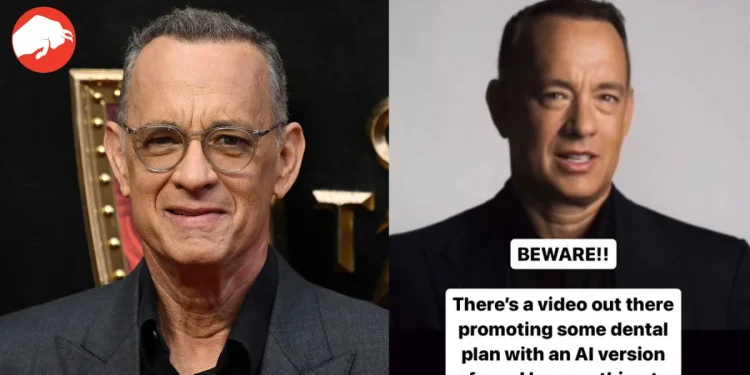Tom Hanks Speaks Out on AI Doppelgänger
In a world where technology is advancing at an unprecedented rate, the use of Artificial Intelligence (AI) in the creative industries is becoming more prevalent. Tom Hanks, the esteemed actor known for his roles in iconic films like “Forrest Gump” and “The Polar Express,” has recently addressed this issue, warning his fans about an AI version of himself being used without his consent.
AI Misrepresentation in Promotional Video
Hanks took to Instagram to alert his followers about a promotional video for a dental plan featuring a computer-generated image of him. He emphatically stated, “BEWARE!! There’s a video out there promoting some dental plan with an AI version of me. I have nothing to do with it.” This unauthorized use of his likeness raises questions about the ethical implications of AI and deep fake technology in media and advertising.

Hanks’ Forewarning on AI in Creative Industries
The two-time Academy Award winner has been vocal about the burgeoning use of AI in the entertainment sector, having previously discussed the potential ramifications of this technology on The Adam Buxton Podcast. Hanks recalled his experience working on “The Polar Express” in 2004, a film that extensively utilized computer-generated imagery. He remarked, “We saw this coming. We saw that there was going to be this ability to take zeros and ones inside a computer and turn it into a face and a character.”
AI’s Impact on Actors and Intellectual Property
Hanks foresees the utilization of AI in movies and TV shows becoming a pivotal negotiation aspect in actors’ contracts. The need to safeguard actors’ likenesses as intellectual property is paramount. He revealed, “I can tell you that there [are] discussions going on in all of the guilds, all of the agencies, and all of the legal firms to come up with the legal ramifications of my face and my voice — and everybody else’s — being our intellectual property.”
View this post on Instagram
The Future of AI in Entertainment
The advancements in AI and deep fake technology have opened up possibilities that were once deemed science fiction. Hanks pointed out the potential for actors to recreate themselves at any age and continue to star in films posthumously. He stated, “Anybody can now recreate themselves at any age they are, by way of AI or deep fake technology… I could be hit by a bus tomorrow and that’s it, but my performances can go on and on and on.”
Tom Hanks’ recent experience with AI misrepresentation underscores the urgent need for regulations and discussions surrounding the ethical use of AI and deep fake technology in creative industries. The ability to recreate lifelike representations of actors poses both opportunities and challenges, prompting a reevaluation of intellectual property rights and contractual agreements in the entertainment sector. As technology continues to evolve, the industry must adapt to ensure the protection of actors’ likenesses and the integrity of their work.









